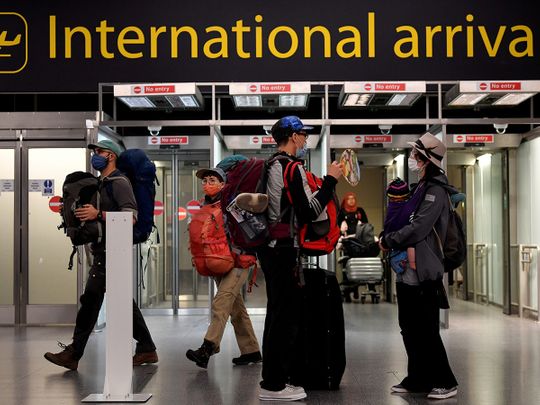
Dubai: All passengers on international flights should go through a systematic testing procedure before departure, according to the International Air Transport Association (IATA). The plan will involve 100 per cent testing of travellers at the airport before they board.
IATA will start with international passengers before moving to domestic air travel. “This should enable governments to safely open borders without quarantine," said Alexandre de Juniac, IATA's CEO. "And it will provide passengers with the certainty that they can travel without having to worry about last minute change in government rules.
IATA is optimistic about implementing the programme during October itself. The industry group also hopes to convince partners and governments to adopt this plan instead of the current quarantine system, which has caused people to put off travel.
“We did not come to this decision lightly – the integration of systematic testing to the travel process will present logistical challenges. It leads manufacturers to develop a test that can be deployed that is fast, accurate, scalable, affordable and easy to operate.”
Bearing the costs
The IATA head also said passenger testing will be paid by governments. "We have to see how the cost would be financed by governments," he added. "If we implement a testing process, it's a medical regulation that is within the international regulation issued by WHO and should be normally paid by governments."
"We expect a solution, or several solutions to come in the market in the coming weeks. And considering the potential scale of the testing required non-medical personnel will need to be able to operate it effectively. And it will need governments to agree on common standards, so that test administered in the departure country are accepted on arrival," said Juniac.
To implement the programme, several issues have to be dealt with first. "First of all, is the testing industry ready to provide the right test? We should have an antigen test ready by October," said Juniac.
"And then we will need production rates that are compatible with the needs. Secondly, we need to discuss - and convince governments - that it is the right process for them to lift the restrictions and borders and on travel."








